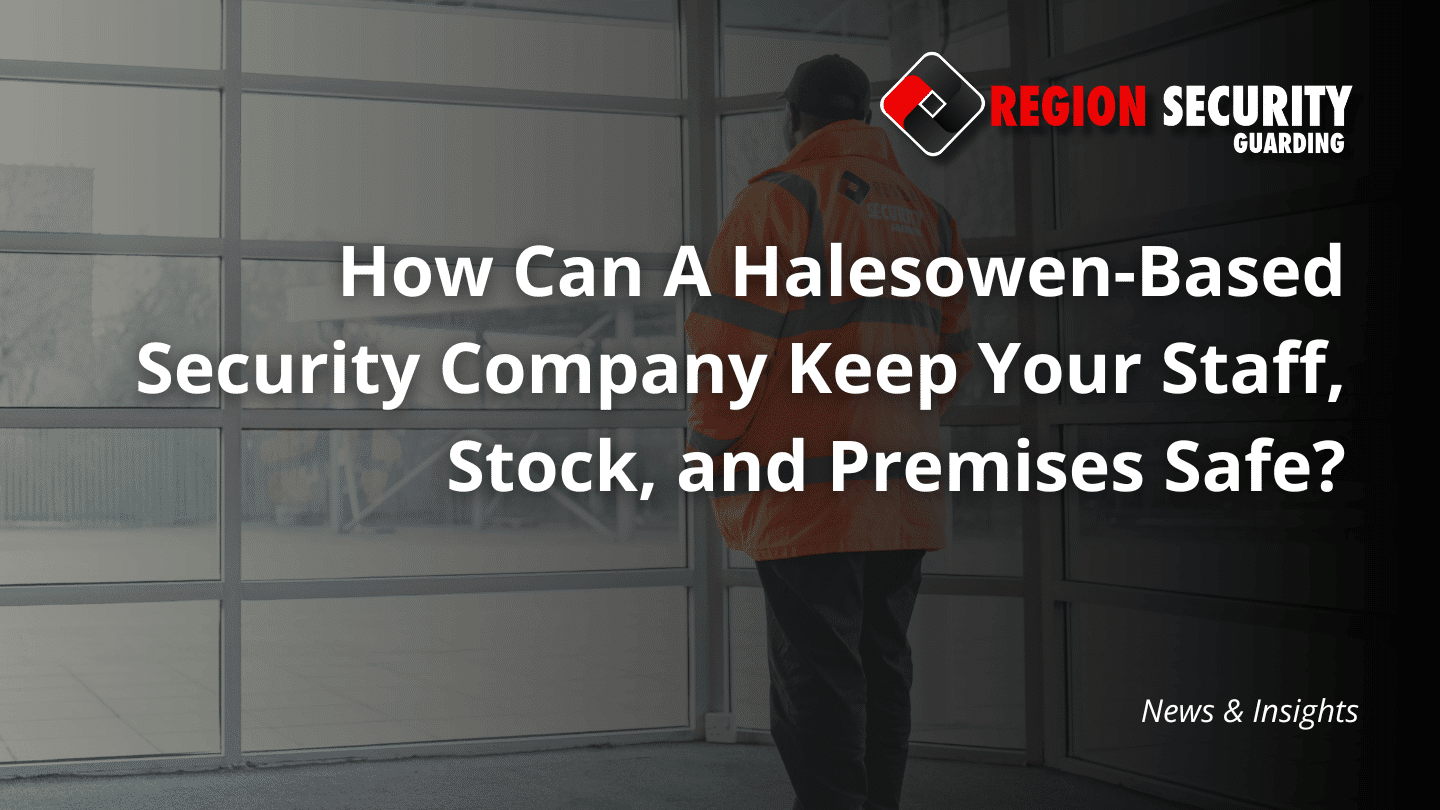Crime remains a pressing issue in England and Wales, with the number of recorded crimes reaching approximately 6.66 million in 2023/24 according to Statista. Given this ongoing concern, it’s crucial to stay vigilant and take measures to protect yourself against potential threats such as robbers, thieves, and kidnappers.
Ironically, technology has made it both easier and more challenging to protect yourself. On one hand, advanced alarms and security systems offer robust protection for you and your property. On the other hand, GPS and location settings have made it easier for digital thieves to track your movements.
Region Security Guarding is here to help. Read on to discover practical tips and solutions to safeguard yourself and your property.
Table of Contents

What Is Personal Safety?
Personal safety is when one watches out for themselves and ensures they are protected. It is every measure that you take to ensure that nothing bad happens to you.
Personal safety means the steps and precautions people take to protect themselves from harm or danger. It involves being aware of your surroundings and recognising potential threats.
Whether it’s locking your doors, or avoiding risky areas, personal safety encompasses all measures taken to ensure your security and peace of mind. It’s about ensuring that you remain safe in various aspects of your life.
How to Improve Personal Safety?
To improve personal safety, you should consider the following points:
- Try to get into the habit of thinking about your safety when you’re out, and the ways that you could improve it.
- Make sure to plan ahead so that you know how to keep safe.
- Think about the extra ways and methods that you can use to help keep your belongings and valuables safe.
- Make sure to constantly be alert and don’t trust anyone with your valuable information.
What Should Personal Safety Mean to You?
Personal safety is essential and should be a top priority for everyone. Failing to take precautions can leave you vulnerable to situations you may regret later. To practice personal safety effectively, it’s important to first recognise the risks and threats that exist in the world today.
Understanding why personal safety matters will help you stay alert and motivated to protect yourself. Once you’re aware of these dangers, the next step is to incorporate personal safety tips into your daily routine. By doing so, you can reduce the risk of falling victim to crime and ensure your well-being.
Personal Safety Tips
Below are our top ten personal safety tips that we recommend to help you stay safe:
1. Stay Alert
As crime is something that happens everywhere. It is extremely important that you stay alert, and you are constantly aware of your surroundings. It is easier for potential threats and thieves to catch you off guard when you aren’t paying attention to your surroundings.
Crime can happen anywhere, making it crucial to stay alert and aware of your surroundings at all times. When you’re distracted or not paying attention, it becomes easier for potential threats or thieves to catch you off guard. Being mindful of what’s happening around you can help you identify risks early and take action to protect yourself.
2. Travel With Groups
Being in a large group can reduce the likelihood of becoming a target for criminals. Most criminals avoid attempting anything when faced with a group, as the chances of being caught increase dramatically. It’s much harder for them to ambush or confront five or ten people compared to a single person. By staying together, you enhance your safety and that of everyone in the group.
3. Research Where You’re Going To
When traveling to a new place, it’s useful to research the area beforehand. Being unfamiliar with your surroundings can leave you vulnerable to getting lost or potentially becoming a victim of crime. If you’re visiting a country for the first time, gather as much information as possible, such as nearby landmarks, safe zones, and areas known to be dangerous. You could also look into the times when certain areas might be less safe. Proper preparation ensures you stay informed and can navigate the new environment safely.
4. Always Carry a Personal Alarm
Personal alarms are small devices designed to help maintain your safety. When activated by pressing a button or pulling a lever, they produce a loud sound to alert others nearby. If you’re walking home and feel unsafe, using a personal alarm can quickly draw attention and signal that you need help.
5. Trust Your Instincts
Your instincts are a powerful tool for personal safety. If something feels off, whether it’s a person, a place, or a situation, it’s important to trust that feeling. Your intuition often acts as an early warning system, helping you avoid potential danger. If you sense discomfort or unease, take action to remove yourself from the situation. Listening to your instincts can be a crucial step in staying safe.
6. Try to Stay In Well-Lit Areas
Well-lit areas are significantly safer than poorly lit ones. Adequate lighting makes it harder for criminals to carry out their plans without being noticed. To enhance your safety, try to avoid dark, isolated areas whenever possible. In well-lit environments, you’ll also find it easier to stay alert and aware of your surroundings, reducing the risk of potential threats.
7. Keep Your Valuables Close To You
Valuables can be a significant loss if stolen, so it’s crucial to keep them secure and within reach. When out in public, always ensure your valuables are close to you or within your sight. Thieves are quick and can take items without you noticing, making it important to keep your belongings in a safe, secure place at all times.
8. Contact Someone If You’re In Trouble
If you ever feel like you’re in danger, such as being followed, contact a friend or family member right away. Letting someone know your whereabouts can be crucial for your safety. In case of an emergency, your loved ones can quickly alert authorities and provide support, ensuring help arrives as quickly as possible.
9. Don’t Give Important Information to Strangers
You might get sales or telemarketing calls where strangers would try to ask you for information. Please don’t engage much with those strangers as they will try to get you to spill valuable information. They can use such information to track your location or even get into your bank accounts. Hence, make it a habit to keep your valuable information to yourself.
Be wary of sales or telemarketing calls from strangers who may try to get personal information from you. Engaging with them can lead to the risk of your details being used to track your location or access your bank accounts. Make it a habit to keep your personal information private and avoid sharing sensitive details over the phone.
10. Lock Your House/Car Whenever You Leave
In the rush of everyday life, it’s easy to forget to lock your house or car, especially when you’re running late. However, the risk of leaving them unlocked is far greater. Returning to find broken windows or missing valuables is a consequence no one wants to face. Make it a habit to take the extra time to securely lock your doors and car, as this simple step can significantly reduce the chance of a break-in.
To stay updated with all the latest safety tips and guides check out our news page. Here you’ll find content such as our festival security guide and how to keep hotels safe from threats.

Business Security You Can Rely On
Trusted by leading businesses nationwide for reliable, 24/7 protection.
or call 0330 912 2033

We have used Region security for quite a while now. Top notch service, great guards and helpful staff. We love our guards and the team for all of their help / work. No need to try the other companies at all."
Andy Yeomans - Jones Skips Ltd
Great company, professional services, friendly guards and helpful at times when required."
Rob Pell - Site Manager
A professional and reliable service. Always easy to contact and has never let us down with cover. No hesitation in recommending and competitively priced also. After using an unreliable costly company for several years it is a pleasure to do business with Region Security"
Jane Meier - Manager
Region Security were very helpful in providing security for our building. We had overnight security for around 4 months. The guards themselves were professional, easy to reach and adapted very well to our specific needs. Would definitely recommend Region for security needs.
Lambert Smith Hampton
Great service. Reliable and professional and our lovely security guard Hussein was so helpful, friendly but assertive with patients when needed. He quickly became a part of our team and we would love to keep him! Will definitely use this company again
East Trees Health Centre
Fantastic Service from start to finish with helpful, polite accommodating staff, we have used Region Security a few times now and always been happy with what they provide.
Leah Ramsden - Manager




